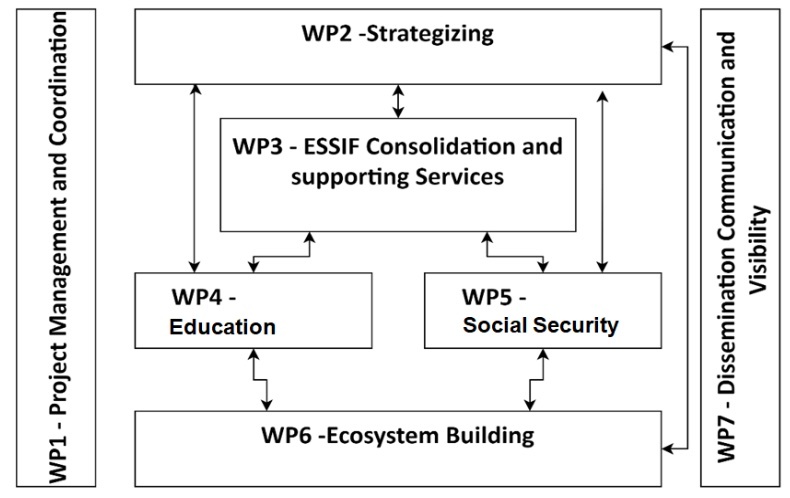Projekt och Aktiviteter
VECTOR
Project abstract
The EBSI-VECTOR (EBSI enabled Verifiable credentials and Trusted Organisations Registries) project brings the power of the self- sovereign identity paradigm into the educational and social security context. 52 partners from 20 countries will transform the digital interaction of studying and working citizens in Europe and simplify some of the complex verification processes for organisations in a decentralised way. The consortium consolidates the current EBSI capabilities on verifiable credentials and trusted registries and extends it with new capabilities like the decentralised identity of legal persons or revocation functionality. The EBSI-VECTOR project is driven by business requirements and input from policy and business organisations from education and social security included in the project. Defining and executing the strategy for scaling up the EBSI capabilities and uptake in different countries with the many engaged educational and social security actors is an essential focus of the project. The creation of national coordination and support unites drives the extensive implementation effort in education and the piloting of social security. The project provides the necessary building blocks and tools for citizens and organisations to interact with each other via verifiable credentials and use the privacy- friendly verification power of the EBSI decentralised trusted registries. The participation of different European solution providers in the project guarantees the stimulation and uptake of the EBSI conformant wallet ecosystem and market to enable citizens and organisations a broad choice of solutions beyond the reference implementations. The project actively collaborates as part of a more extensive ecosystem with many related European projects and initiatives like ESSPASS, EHIC, and EUROPASS. EBSI-VECTOR aligns with building blocks like EUeID or SDG to provide citizens and organisations with the best integrated and balanced solution for their digital interaction.
Workplan and workpackages
The EBSI-VECTOR project organises its activities into seven Work Packages aligned with the activities and objectives described in section 1.1. EBSI-VECTOR work plan runs along a project timespan of 24 months.
- WP1 provides the structure for the overall project management including administrative, financial and technical coordination guaranteeing an effective and smooth implementation of the project throughout its entire duration. Also WP1 ensure the# project’s compliance with data protection law and outline an ethical framework.
- WP2 develops and adjusts strategies to support the implementation of ESSIF, diploma, and social security use cases for uptakes, interoperability, transition and long-term alignment with eIDAS solutions, and scaling up. WP2 contains cross- cutting activities such as field research, communication, and policy assessment to develop implementation strategies.
- WP3 will provide the foundation on which the business implementation in education and social security will be realized. WP3 defines the specifications of the ESSIF capabilities (elaboration of current capabilities but also new capabilities like revocation or identity for legal persons) to be built in EBSI and develops the critical open source building blocks to make an uptake by issuers and verifiers possible. Via the support of solution providers, the creation of EBSI conformant and interoperable holder wallet market is stimulated.
- WP4 focuses on the implementation of EBSI capabilities in the educational domain.
In this WP the involved experts and organisations will define the requirements via a business blueprint and instantiate the ESSIF specifications in their specific sector. The large group of pilot agents will integrate the EBSI capabilities in their
systems and process to start the production implementation. - WP5 focuses on the deployment security and will perform a PoC with parties to demonstrate and validate the functionality of using credentials in a EBSI compliant infrastructure.
- WP6 will design cross-country ecosystems for each use case to provide policy support for the deployment of the use cases and define the business strategy for sustainability.
- WP7 will setup dissemination and communication campaigns to boost awareness about EBSI services to the different target audiences, with a particular emphasis on citizens and key stakeholders involved, in line with WP6 strategies, in the use cases related to education and social security.
